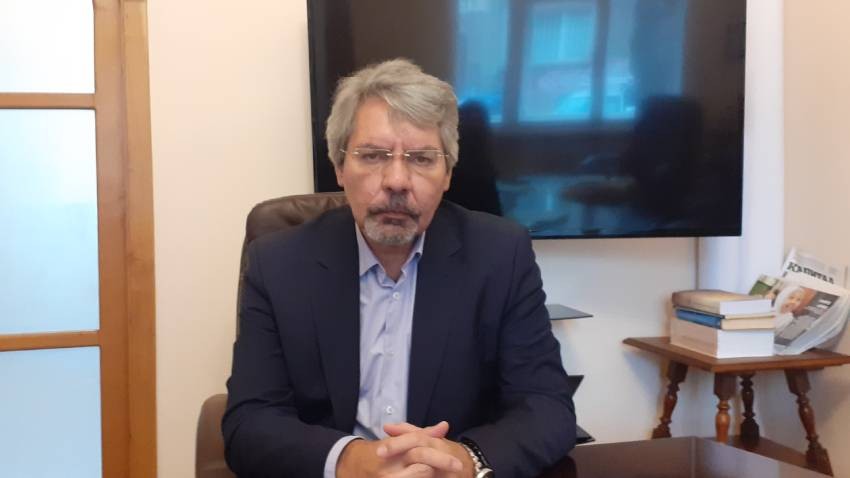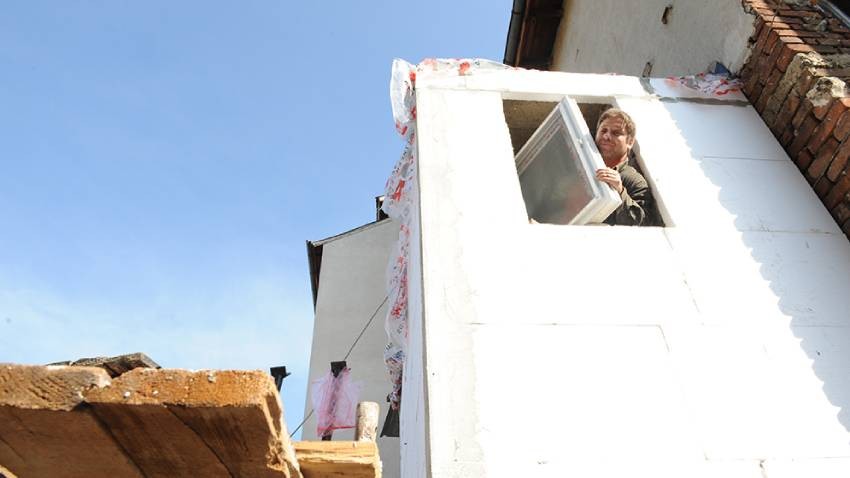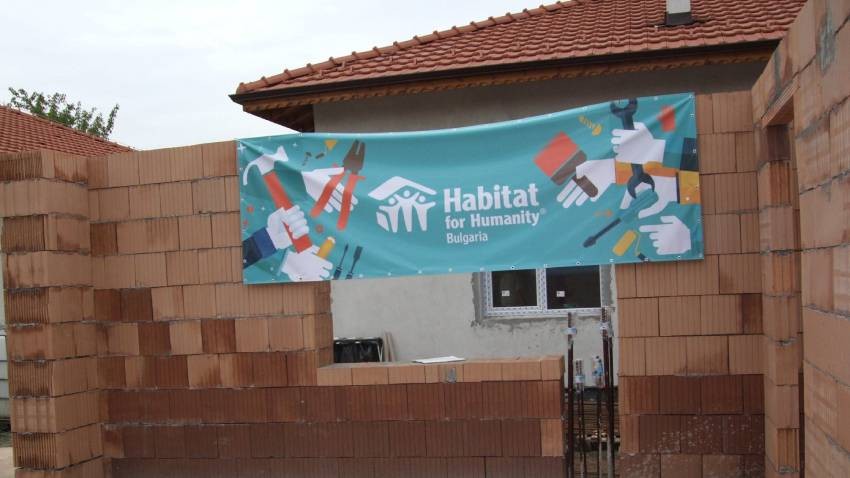The home is the place where all the unresolved problems in our society can be easily seen. It is difficult to talk about early childhood development if children sleep in the same bed or live in the same room with their parents until they are teenagers. It's hard to talk about education if they don't have a place to study. You can't even talk about health care if children don't have the opportunity to bathe and maintain hygiene.
32% of the population in Bulgaria lives at risk of poverty and social exclusion, according to the data of the National Statistical Institute for 2022. This places Bulgaria among the countries where the population is at great risk of poverty and all the consequences that arise from it. According to the non-governmental organization Habitat Bulgaria, these families cannot cover their basic household needs, therefore they rarely manage to spend money from their budget to improve housing conditions. The organisation implements a model for improving the housing of the poorest people in various neighborhoods and settlements of the country.

A micro-financing project for urgent repairs and improvements is aimed at them. The money is distributed through a local organization that manages the grant, amounting to BGN 20,000 in 2023. The individual loan is in the amount of BGN 1,200, used for roof repair, bathroom, premises, as well as for improving the energy efficiency of the buildings. Recipients are obliged to return the funds after one year, as this money is given to other applicants. Thus, micro-financing is a sustainable way of helping, different than the familiar model of social assistance, which makes people passive.

"We are working in places where economic and housing poverty reach terrifying scale. People live in conditions unacceptable for the 21st century, and it is unacceptable for such neighborhoods to exist in an EU country," says Mincho Benov, head of Habitat Bulgaria:
"Unfortunately, the problem has deepened over the years. We aim at solving it, because this is the mission of Habitat Bulgaria. It is an organization that aims at improving housing conditions in the country and eliminate housing poverty. This program has existed since 2008 and for the entire period we have financed individual loans for more than 1 million and 800 thousand BGN. Our approach works because the return we have with the regular servicing of these loans is extremely high. By March 2020, when the pandemic started, we had a return rate of over 97%, which is an extremely high level, especially considering the risk environment in which we operate. In the year since we restarted it, we have only had one delinquent loan so far. People take a second and a third loan so that they can gradually solve bigger problems, which is apparently happening and the program is working."
The non-governmental organization has focused its efforts on places of extreme poverty. People's low income does not allow them to get financing in the usual way. "That's why the approach there should be by combining different support tools," Mincho Benov says and adds:

"In addition to access to this interest-free financing, we have developed and offer three different training modules in these communities - on financial literacy, on saving resources and practical advice on how to build legally and how to do different types of renovations. In addition, every year we provide interest-free funding to communities for local initiatives that they have previously proposed. In this way, the foundation achieves real goals. For example, in some villages in the region of Botevgrad, street lighting was built, energy-saving light bulbs were distributed to families, while in a village near Targovishte, a new playground is also being built."

Habitat Bulgaria is a partner of the state in the development of policies at the national level, but from the field work it is clear that the state is absent in support for the poorest communities. In the past 30 years, the municipalities have not fulfilled their obligations and have allowed illegal construction on a large scale, overpopulation is on the rise and living conditions of the people are getting worse, Micho Benov says. According to him, the long-term work of the foundation indicates that change can be achieved, but only if more funds and a responsible attitude on the part of the government are directed towards the issue.
Publication in English: Al. Markov
Photos: BGNES, Habitat Bulgaria
Support for the activities of the Institute of Social Activities and Practices in Sofia is the cause that will unite organizers and guests of the Viennese Ball, which has become a tradition for the Bulgarian capital. This year's edition, scheduled..
Topics related to renewable resources and natural disasters united students from the Bulgarian Sunday School "Assen and Iliya Peykovi" in Rome, the First English Language School in Sofia and the Greve High School near Copenhagen. The project aims to..
More than 50 wine producers from Bulgaria and Greece are going to take part in the contest for best wine with which the two-fay wine festival will kick off in Delchevo village near Gotse Delchev. Expert oenologists will evaluate a total of 134..
Topics related to renewable resources and natural disasters united students from the Bulgarian Sunday School "Assen and Iliya Peykovi" in Rome, the First..
Support for the activities of the Institute of Social Activities and Practices in Sofia is the cause that will unite organizers and guests of the..

+359 2 9336 661
